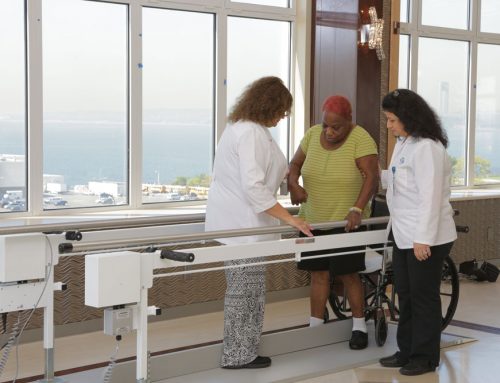When an individual is scheduled for surgery, it’s common to ask questions about anesthesia, risks, and recovery time. Of course, considering what your post-operative care will look like is also essential. A plan for a smooth recovery is important, especially for those with underlying health issues. This is also crucial for those preparing for serious surgeries that could involve unexpected issues. These can include longer healing times and the need for additional support.
For some individuals, inpatient post-surgical care may be necessary, offering short- or long-term options as needed. Skilled professionals are available at such facilities to monitor your recovery and deal with any complications. Trained therapists are on-hand for any rehab therapies your doctor recommends.
If you’d like to learn more about post-surgery care and its benefits, keep reading.

When Is a Plan for a Smooth Recovery After Surgery Absolutely Crucial?
Unfortunately, not everyone has the option of going home after their surgery. There are some instances when inpatient post-surgery care is necessary.
- General decline – Older adults experience a decline in physical, mental, and emotional health. These factors reduce the speed at which they heal. After surgery, even a few days in the hospital may contribute to a decrease in muscle strength, mobility, and stamina. Some individuals also lack the motivation to aid in their recovery or suffer from stress or anxiety from the procedure.
- Underlying conditions – For some individuals, underlying health conditions make rehab more difficult. If they are on medication, keeping track of extra pills or treatments may also be too much for them.
- No support – Even the most capable elderly person may need extra help after a surgical procedure. If they live alone, they lack the support required to help them with various tasks.
- Unsuitable living situation – Not every home is designed for post-surgical care. Stairs to climb, loose rugs, electrical cords, or general clutter can all be hazardous during recovery. An inpatient facility is the safest place for anyone recuperating after a surgical procedure.
- Other conditions – Those bed-ridden or with sedentary habits may not have the strength to promote proper healing. A lack of exercise results in weak muscles and joints, so rehab therapy may require extra assistance.
What is the goal of post-operative care?
The goal of post-operative care is to promote a patient’s recovery. Doing so requires several facets, including monitoring oxygenation, bowel functions, mobility, and fluid balances. Providing wound care and preventing complications are also part of the process.
Most individuals experience pain after surgery, which causes psychological and physiological issues. Pain management is essential to reach post-operative goals. Doing so can speed up recovery for smooth transitions into their former functions.
Luckily, not everyone requires inpatient post-surgery care after a surgical procedure. Some may not need more than a few days of recovery in a hospital before heading home. These individuals likely prepared for their surgery beforehand.
Such steps include discussing the risks, anesthesia options, and recovery time. Eating well and maintaining a healthy weight are helpful as well. Exercise and relaxation techniques are also crucial before any procedure.
However, those with serious health conditions and the elderly will most likely need a good post-operative care. Contact us for more information if you live in Brooklyn NY. We are here to answer any questions you may have.
This content comprises informative and educational resources only and can not be considered as a substitute for professional health or medical guidance. Reliance on any information provided in this article is solely at your own risk. If you have any inquiries or apprehensions about your medical condition or health goals, talk with a licensed physician or healthcare provider.






Leave A Comment